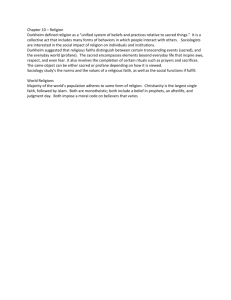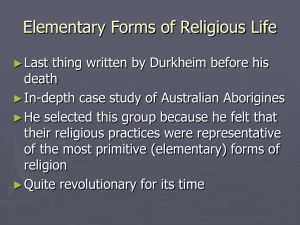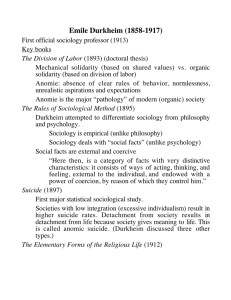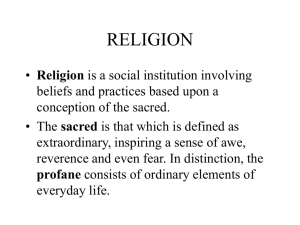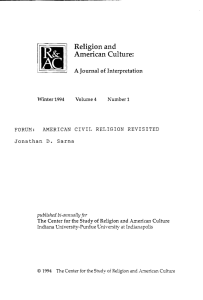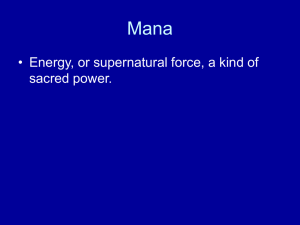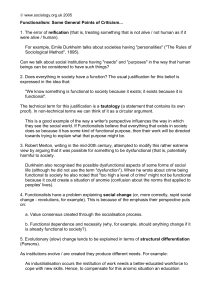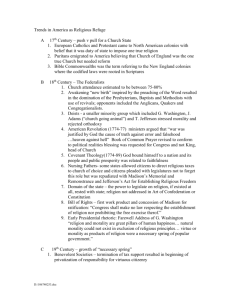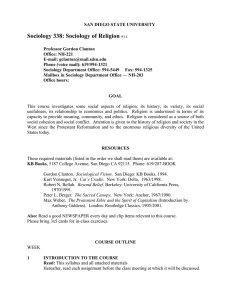Bellah, Durkheim, morality, religion, meaning, and the good life (and
advertisement
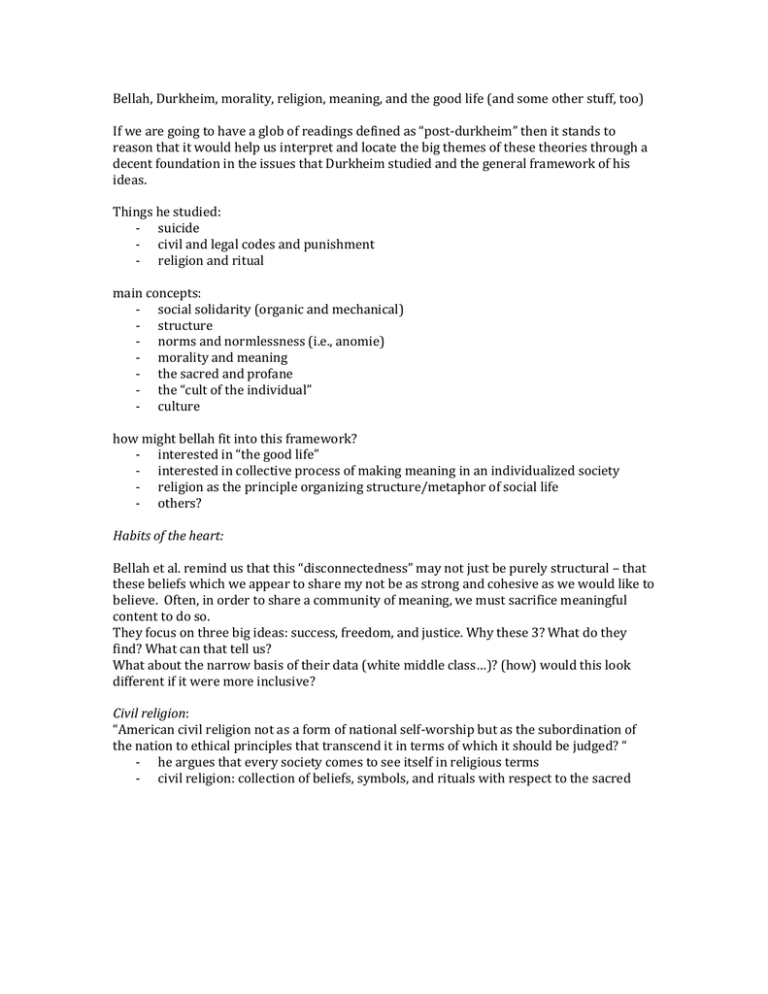
Bellah, Durkheim, morality, religion, meaning, and the good life (and some other stuff, too) If we are going to have a glob of readings defined as “post-durkheim” then it stands to reason that it would help us interpret and locate the big themes of these theories through a decent foundation in the issues that Durkheim studied and the general framework of his ideas. Things he studied: - suicide - civil and legal codes and punishment - religion and ritual main concepts: - social solidarity (organic and mechanical) - structure - norms and normlessness (i.e., anomie) - morality and meaning - the sacred and profane - the “cult of the individual” - culture how might bellah fit into this framework? - interested in “the good life” - interested in collective process of making meaning in an individualized society - religion as the principle organizing structure/metaphor of social life - others? Habits of the heart: Bellah et al. remind us that this “disconnectedness” may not just be purely structural – that these beliefs which we appear to share my not be as strong and cohesive as we would like to believe. Often, in order to share a community of meaning, we must sacrifice meaningful content to do so. They focus on three big ideas: success, freedom, and justice. Why these 3? What do they find? What can that tell us? What about the narrow basis of their data (white middle class…)? (how) would this look different if it were more inclusive? Civil religion: “American civil religion not as a form of national self-worship but as the subordination of the nation to ethical principles that transcend it in terms of which it should be judged? “ - he argues that every society comes to see itself in religious terms - civil religion: collection of beliefs, symbols, and rituals with respect to the sacred
